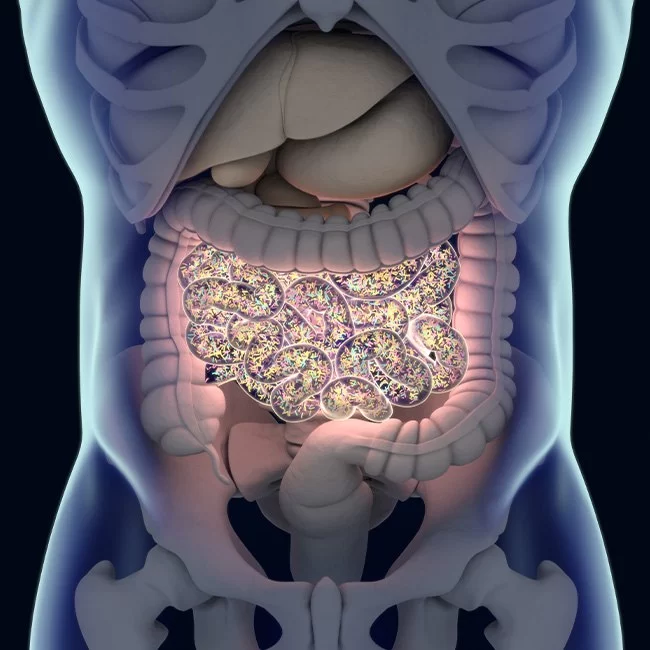The Relationship Between Gut Bacteria and Cholesterol Metabolism
Gut bacteria play a vital role in many aspects of human health, and recent research has highlighted their significant influence on cholesterol metabolism. While we often associate cholesterol metabolism with the liver, emerging studies suggest that the gut microbiome—home to trillions of bacteria—can also affect how our bodies process and regulate cholesterol. This article will explore the relationship between gut bacteria and cholesterol metabolism, explaining the mechanisms at play, their impact on heart health, and practical ways to support a healthy gut microbiome.
1. Understanding Cholesterol Metabolism
Cholesterol is a type of lipid (fat) that is essential for building cell membranes, producing certain hormones, and aiding in vitamin D synthesis. However, too much cholesterol—especially low-density lipoprotein (LDL) cholesterol, often referred to as "bad" cholesterol—can lead to plaque buildup in the arteries, increasing the risk of cardiovascular disease. The body regulates cholesterol levels through the liver, but the gut microbiome is also emerging as a crucial player in this process.
1.1. The Role of the Liver in Cholesterol Regulation
The liver produces cholesterol and also processes the cholesterol we consume from food. It produces high-density lipoprotein (HDL) cholesterol, known as "good" cholesterol, which helps remove excess cholesterol from the bloodstream. However, when the liver doesn’t function properly or when the body’s cholesterol regulation is disrupted, problems can arise. That’s where gut bacteria come in—they can influence liver function and the overall cholesterol regulation process.
2. The Role of Gut Bacteria in Cholesterol Metabolism
Gut bacteria, also known as the gut microbiome, consist of a diverse array of microorganisms, including bacteria, viruses, fungi, and other microbes. These bacteria help digest food, synthesize vitamins, and play a crucial role in immune system regulation. Recent studies suggest that gut bacteria also influence cholesterol metabolism in various ways.
2.1. Gut Bacteria and Bile Acid Metabolism
One of the key mechanisms through which gut bacteria affect cholesterol metabolism is through their role in bile acid metabolism. Bile acids are produced in the liver from cholesterol and are essential for digesting fats. Once bile acids are used in digestion, they are reabsorbed in the intestines and returned to the liver. However, gut bacteria can alter this cycle by converting primary bile acids into secondary bile acids. This process can reduce the reabsorption of bile acids, leading to a greater excretion of cholesterol and a reduction in cholesterol levels in the blood.
2.2. Gut Bacteria and Short-Chain Fatty Acids (SCFAs)
When gut bacteria break down fiber from plant foods, they produce short-chain fatty acids (SCFAs) like butyrate, acetate, and propionate. These SCFAs have several health benefits, including promoting gut health and reducing inflammation. Recent research also suggests that SCFAs can help regulate cholesterol metabolism by influencing liver function and the production of certain enzymes involved in lipid metabolism. A healthy balance of gut bacteria that produces SCFAs may help maintain healthy cholesterol levels and support heart health.
2.3. Gut Bacteria and Lipid Metabolism
Gut bacteria can also affect the synthesis and breakdown of lipids (fats) in the body. Certain strains of bacteria can influence the way the body processes dietary fat, leading to changes in blood lipid levels. For example, some studies have found that gut bacteria can increase the absorption of fat from the intestines, while others have shown that certain bacteria can help reduce fat accumulation in the liver. This relationship between gut bacteria and lipid metabolism can have a direct impact on cholesterol levels.
3. How Diet Affects Gut Bacteria and Cholesterol Levels
The types of foods we eat can significantly impact the composition of our gut microbiome, which in turn can affect cholesterol metabolism. Diets high in fiber, plant-based foods, and fermented foods can support the growth of beneficial gut bacteria that promote healthy cholesterol levels, while diets high in saturated fats and sugars can encourage the growth of harmful bacteria that may lead to higher cholesterol levels.
3.1. Fiber-Rich Foods and Cholesterol
Fiber is essential for digestive health and plays a significant role in cholesterol metabolism. Soluble fiber, found in foods like oats, beans, and fruits, binds to bile acids in the intestines, helping to reduce cholesterol levels. A high-fiber diet can promote the growth of beneficial gut bacteria that support healthy bile acid metabolism and reduce the absorption of dietary cholesterol.
3.2. Probiotics and Fermented Foods
Fermented foods such as yogurt, kimchi, sauerkraut, and kefir contain probiotics—live bacteria that support a healthy gut microbiome. Research has shown that probiotics can help regulate cholesterol levels by enhancing bile acid metabolism and promoting the production of beneficial SCFAs. Including probiotic-rich foods in your diet can help nurture gut health and support healthy cholesterol levels.
3.3. Avoiding Excessive Saturated Fats and Sugars
On the other hand, diets high in saturated fats and refined sugars can disrupt the balance of gut bacteria, promoting the growth of harmful microbes that can contribute to elevated cholesterol levels. Reducing your intake of processed foods, fried foods, and sugary beverages can help maintain a healthy gut microbiome and support better cholesterol metabolism.
4. How to Improve Gut Health for Better Cholesterol Regulation
Improving gut health is an effective strategy for regulating cholesterol levels. A balanced, nutrient-rich diet is the cornerstone of good gut health, but other lifestyle factors, such as exercise, stress management, and adequate sleep, also play a role.
4.1. Eat a Balanced Diet
Focusing on whole, nutrient-dense foods such as fruits, vegetables, whole grains, nuts, seeds, and lean proteins can help support gut health. These foods are rich in fiber, antioxidants, and healthy fats, all of which promote the growth of beneficial bacteria and support cholesterol metabolism.
4.2. Exercise Regularly
Physical activity has been shown to positively influence gut microbiota composition. Regular exercise can increase the diversity of gut bacteria and promote the growth of bacteria that support healthy cholesterol levels. Aim for at least 150 minutes of moderate-intensity exercise per week for optimal health.
4.3. Manage Stress
Chronic stress can negatively affect gut health by altering the balance of gut bacteria. High stress levels are associated with an imbalance in the gut microbiome, which can contribute to inflammation and poor cholesterol regulation. Incorporating stress-management techniques, such as meditation, yoga, or deep-breathing exercises, can help support both your gut health and cholesterol metabolism.
5. Conclusion: A Healthy Gut for Healthy Cholesterol
The relationship between gut bacteria and cholesterol metabolism is complex, but emerging research is shedding light on how our gut health plays a critical role in regulating cholesterol levels and supporting cardiovascular health. By maintaining a healthy, balanced diet and lifestyle, you can nurture your gut microbiome and help regulate your cholesterol levels naturally. For personalized advice and more information on heart health, visit HeartCare Hub, where we offer a wide range of resources to help you achieve optimal cardiovascular health.





















